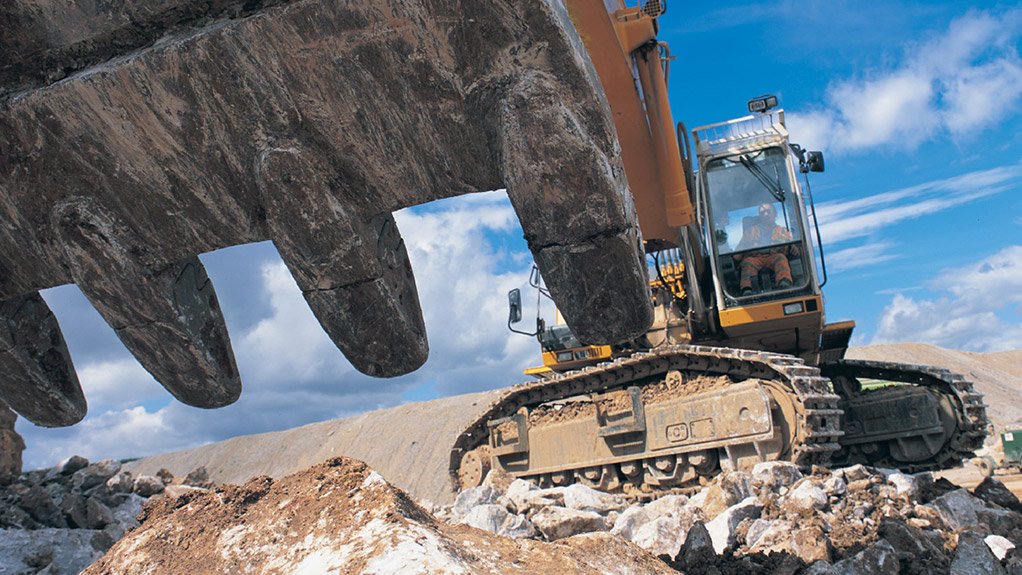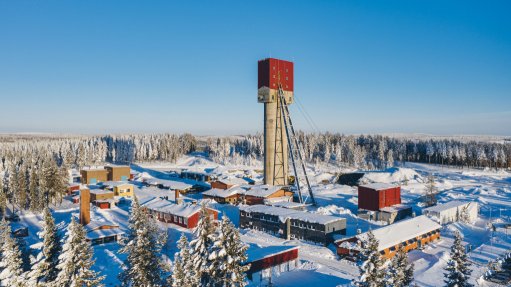Back to basics key message in Deloitte trend forecast
JOHANNESBURG (miningweekly.com) – While the outlook of the global mining sector for the year ahead looks bleak, with mining companies having to contend with price volatility, geopolitical turmoil, rising costs, declining grades and a general lack of access to financing, advisory firm Deloitte believes all is not lost.
In its ‘Tracking the Trends 2015: The top 10 issues mining companies will face this year’ report, the company noted that miners had not seen many positive indicators in recent years, with productivity issues facing South African miners, uncertain growth prospects for countries such as China and India and weak prospects for many commodities, particularly iron-ore and coal.
However, it remained cautiously optimistic, stating that with any data, it was possible to see the glass as either half full or half empty. The US economy was rebounding, but areas of Europe continued to stage a slow, fitful recovery and both China and India had a long way to go on their paths towards urbanisation, industrialisation and electrification.
Further, the outlook for several commodities, including nickel, aluminium, zinc and lead, was improving. The mining sector also appeared to be coming back into favour with investors, with sector valuations, mining capitalisations and total returns showing signs of recovery.
“There is no doubt that mining companies operate in complex geographies where they face increasing challenges in responding to regulatory and compliance requirements.
“At the same time, they have an imperative to adapt to changing market conditions while adopting new innovations as they seek to produce more for less cost. These conditions remain regardless of whether we are in a downturn or a recovering market,” Deloitte global mining leader Philip Hopwood said in the report.
The report’s first trend prediction for this year highlighted that, to embrace the need for longer-term thinking, mining companies were getting back to the basics to clarify what they stood for, what they believed and what they planned to achieve in the long term.
The report also identified innovation as the new key to survival, stating that miners had to overcome their traditionally conservative tendencies by embedding innovation into corporate identity; thinking big, testing small and scaling fast; leveraging emerging technologies; becoming part of an innovation ecosystem; and preparing for new operational realities.
Tying in with South Africa’s biggest current crisis, the report noted that reducing electricity costs would be another significant trend in the year ahead. It stated that miners needed to consider new approaches to energy, including the use of unconventional fossil fuels and gaining stakeholder buy-in for developing renewable-energy facilities.
Further, the report predicted that the supply and demand tightrope would be another trend shaping the year. “To avert the risk of future supply constraints, mining companies need to find a better balance between meeting short-term investor and analyst expectations and maintaining project pipelines,” it noted.
With Chinese investors having become “extremely selective” with financing, paired with traditional lenders cooling down years ago, the report identified financing’s “great disappearing act” as the fifth trend. While this situation was difficult for large and midtier producers, it was “proving fatal for a huge swath of junior miners and mining services companies”. Australian and Canadian companies were hardest-hit, but South African juniors were experiencing similar difficulties.
While solutions were limited, juniors may be able to avert disaster by wooing foreign investors, pooling their resources, exploring alternative financing options and positioning for private equity.
Deloitte Russia mining leader Nikolay Demidov added that the lack of capital available to juniors might force a dramatic industry consolidation. “Some projects will need to be shelved. Most development-stage projects will be put on hold and many distressed companies should consider ways to strike a merger of equals. The industry should also prepare for a shakeout. Too many companies are already running on borrowed time,” he warned.
Continuing on this trend, the sixth trend delved into the survival of the juniors, stating that, to capitalise on shifting ownership patterns, juniors should be taking steps to get their assets in order and consider options, from partnerships and joint ventures to sale and consolidation.
The next trend would see companies seeking new skillsets. “To attract new skills to the sector, companies will need to commit to diversity, explore new talent management systems, get better at recruiting talent in high demand and invest in more targeted training,” the report noted.
As one of the world’s most global industries, the mining sector has long kept an eye on geopolitical movements, another trend shaping the year ahead. Yet, as the pace of change accelerated, it was getting harder to predict the impact of these trends.
Further, it was becoming eminently clear that mining companies faced rising regulatory, geopolitical, economic and technological uncertainty. To succeed in this volatile environment, miners would need to step up their forecasting, scenario planning and risk management capabilities if they hoped to navigate the volatility in years to come.
Response strategies included lobbying for greater policy clarity, leveraging mining associations to influence government policy, becoming more risk intelligent and planning for myriad scenarios. Deloitte mining leader for assurance in Southern African Tony Zoghby noted that, although factors such as labour, social responsibilities and operating conditions differed, it was interesting to observe that mining companies operating in Southern Africa faced exactly the same challenges and difficulties as miners operating in other geographies.
Speaking on the next trend, Deloitte Southern Africa mining leader Andrew Lane said the mining industry did not fully understand the complexities associated with stakeholder engagement, which would be a key trend in 2015. “Too often, relationships with stakeholders are adversarial instead of collaborative. Miners need to turn this equation around by building relationships with stakeholders long before requesting any concessions from them,” he said.
The final trend highlighted better engagement with government, as mining companies’ strategies of closing marginal mines or placing nonperforming mines on care and maintenance were causing governments to back away from regulatory stances. “Strategies to counter regulatory uncertainty include working to build better government relationships, becoming more vocal in both industry and through social media, measuring social impact, helping to set the policy agenda, and better leveraging mobile technologies,” the report outlined.
Comments
Press Office
Announcements
What's On
Subscribe to improve your user experience...
Option 1 (equivalent of R125 a month):
Receive a weekly copy of Creamer Media's Engineering News & Mining Weekly magazine
(print copy for those in South Africa and e-magazine for those outside of South Africa)
Receive daily email newsletters
Access to full search results
Access archive of magazine back copies
Access to Projects in Progress
Access to ONE Research Report of your choice in PDF format
Option 2 (equivalent of R375 a month):
All benefits from Option 1
PLUS
Access to Creamer Media's Research Channel Africa for ALL Research Reports, in PDF format, on various industrial and mining sectors
including Electricity; Water; Energy Transition; Hydrogen; Roads, Rail and Ports; Coal; Gold; Platinum; Battery Metals; etc.
Already a subscriber?
Forgotten your password?
Receive weekly copy of Creamer Media's Engineering News & Mining Weekly magazine (print copy for those in South Africa and e-magazine for those outside of South Africa)
➕
Recieve daily email newsletters
➕
Access to full search results
➕
Access archive of magazine back copies
➕
Access to Projects in Progress
➕
Access to ONE Research Report of your choice in PDF format
RESEARCH CHANNEL AFRICA
R4500 (equivalent of R375 a month)
SUBSCRIBEAll benefits from Option 1
➕
Access to Creamer Media's Research Channel Africa for ALL Research Reports on various industrial and mining sectors, in PDF format, including on:
Electricity
➕
Water
➕
Energy Transition
➕
Hydrogen
➕
Roads, Rail and Ports
➕
Coal
➕
Gold
➕
Platinum
➕
Battery Metals
➕
etc.
Receive all benefits from Option 1 or Option 2 delivered to numerous people at your company
➕
Multiple User names and Passwords for simultaneous log-ins
➕
Intranet integration access to all in your organisation




















